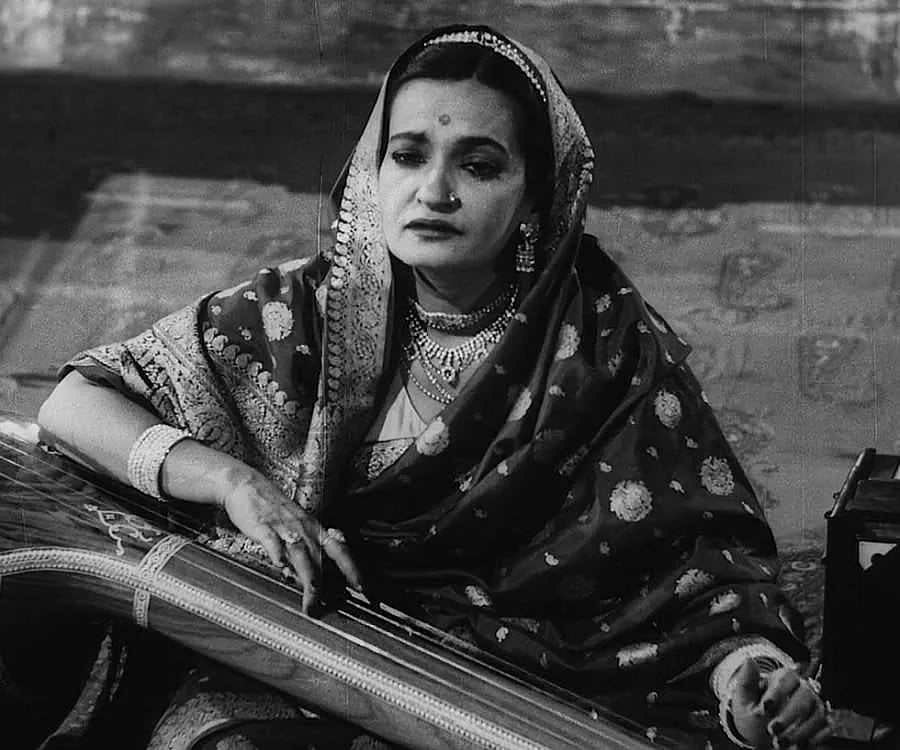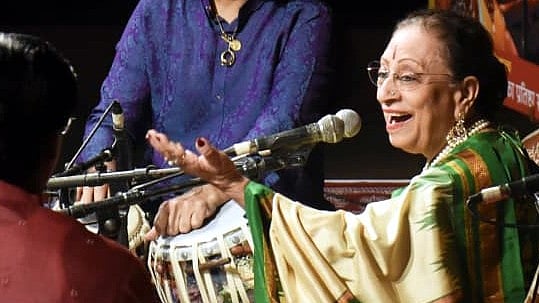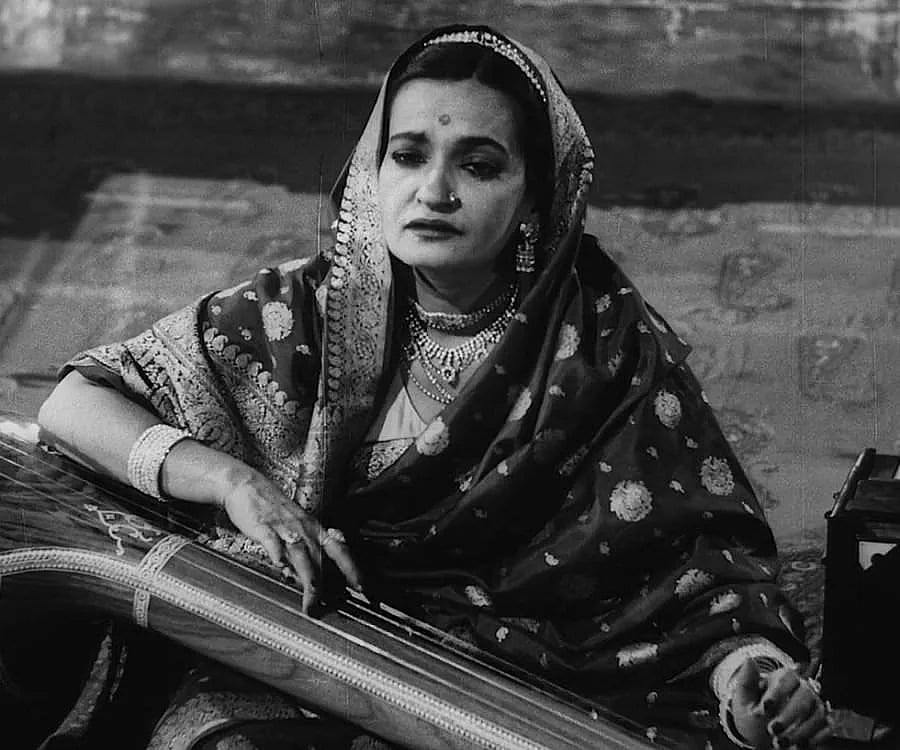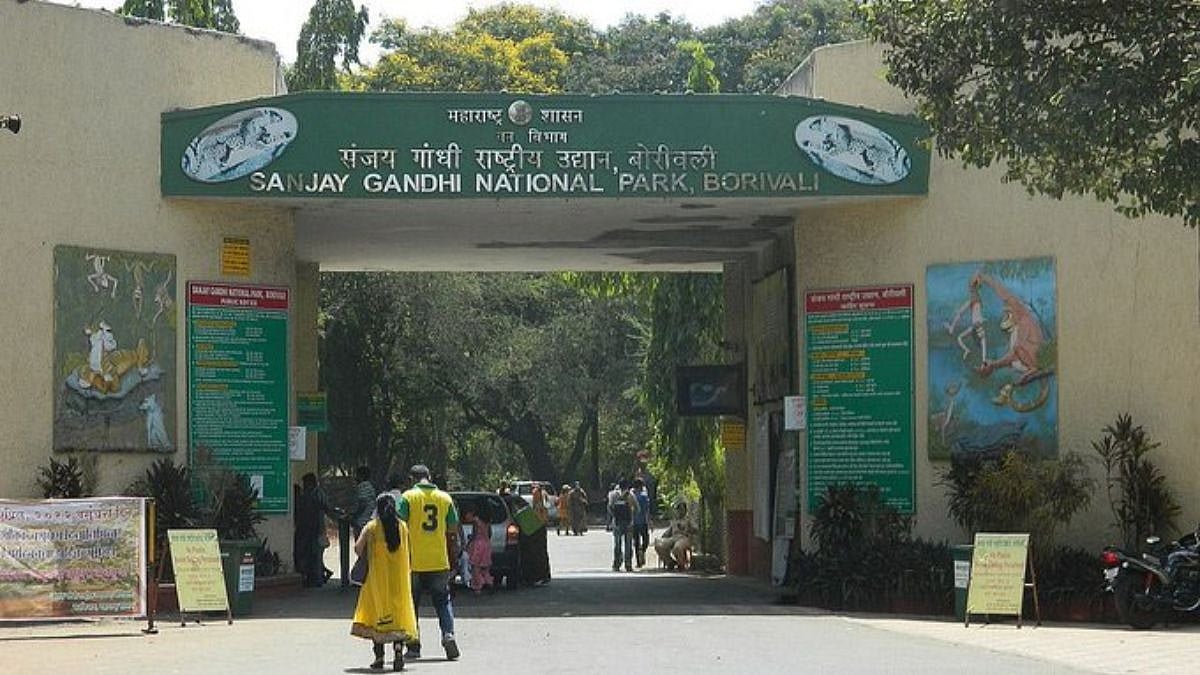Later this month, October 30 marks the death of Begum Akhtar in 1974. Fifty-one years later, when ghazals are mentioned, her name is among the top, maybe even the first, that comes up.
Her story is also interesting enough to have inspired books (notably Akhtari: The Life and Music of Begum Akhtar by Yatindra Mishra and Begum Akhtar: The Story of My Ammi by Shanti Hiranand, a student and companion of the singer) and stage productions—quite recently, Ammi Akhtari, directed by Saif Hyder Hasan.
Begum Akhtar's greatest contribution to Indian music is considered to be elevating and popularising the genres of ghazal, thumri, and dadra. She blended classical Indian elements with soulful Urdu poetry, thus giving the ghazal a different kind of musical significance and bringing it from private mehfils and mushairas into the mainstream.
She was one of the first female artists to record a full-length album in 1935, and she helped break the tradition of women singers being restricted to private performances and sang at public venues and on All India Radio, becoming a national idol often referred to as Mallika-e-Ghazal (Queen of Ghazals).
Born on October 7, 1914, in Faizabad, her lawyer father, Asghar Hussain, abandoned his wife, Mushtari, a tawaif (courtesan), and his twin daughters, Akhtari and Zohra, when they were just four. They were given poisoned sweets, probably by a hostile relative. Zohra tragically didn't make it; Akhtari survived the ordeal of abandonment and bereavement.
Mushtari Begum ensured her daughter received training from the finest masters. Akhtari began her initial taalim (education) around the age of seven or eight under the sarangi maestro, Ustad Imdad Khan, of Patna. She was later trained by stalwarts like Ustad Ata Mohammad Khan of Patiala, where she received a basic knowledge of khayal gayaki (classical singing), and subsequently by Ustad Abdul Wahid Khan of the Kirana gharana and Ustad Jhande Khan. This rigorous classical foundation led to her greatness in the light classical forms she would master. According to information on the net, Akhtari's prodigious talent began to gain public recognition in her teens. Her first major public performance took place at a music festival in Calcutta at the age of fifteen, followed by a concert organised in aid of victims of the 1934 Nepal-Bihar earthquake. Her singing was highly praised by the eminent poetess, Sarojini Naidu, a pivotal moment that encouraged her to pursue music with greater enthusiasm. She cut her first disc for the Megaphone Record Company around this time, going on to record nearly 400 songs in her lifetime.
It is said that, like many female singers, she also had to suffer abuse by her teachers and patrons. By the time she was 13, she had been raped by one of her royal patrons and given birth to a daughter, Shamima, who, her mother fearing disrepute, raised as her child. So Akhtari had to present Shamima as her sister. The story may or may not be true, because the singer never confirmed it. However, it does indicate her strength and grit in coping with adversity, using her voice to pull herself out of the often tragic or squalid life of a tawaif.
The initial trajectory of her life was not too different from the other singers of her time, who came out of the tawaif culture into a society that was just about accepting them—they may have been popular and even respected as artistes, but as women, they were still looked down upon.
Akhtari negotiated an entry into privileged society for herself by marrying up—in 1945, she wed Ishtiaq Ahmed Abbasi, a barrister from an aristocratic family in Lucknow and a connoisseur of Urdu poetry and music. Upon marriage, she became known as Begum Akhtar. It meant getting into purdah and giving up music. For several years, she did not sing; then multiple miscarriages and the death of her mother affected her deeply. The only way of recovering from grief and depression was music. She returned to her singing career, even though it meant the end of her marriage. Her deep, husky, and richly modulated voice conveyed the pathos and heartbreak that the poets wrote about, and her own pain added that magical melancholy that so bewitched listeners.
Well-known critic Raghava Menon wrote about her, “Akhtar was constantly caught up in a male-dominated world. She could never escape, even in the middle class, for there were inescapable social stigmas. But, it seems to me, she had an understanding of the predicament of the human being, and she used her life as a source of understanding of the masses who have looked for things, searched for things, gone on a journey to discover things and, in some cases, come back empty-handed, finally realising that the important thing is the journey. She seemed like that to me. She was a remarkable, highly evolved woman."
She was approached by the East India Film Company of Calcutta to act in films like King for a Day and Nal Damayanti in 1933. Later, the famous producer-director Mehboob Khan cast her in his film Roti, in which she played a character called Darling and also sang her own songs. However, her true calling remained music, and she eventually stepped away from her acting career to focus on her singing.
Begum Akhtar passed away at the age of 60 after suffering a heart attack during a performance in Ahmedabad. She was buried next to her mother in an orchard in her home, 'Pasanda Bagh', in the Thakurganj area of Lucknow.
She is reported to have said once that the taseer (essence) of music came from honesty. And that was possibly what included her in the music hall of fame for all time to come.
Deepa Gahlot is a Mumbai-based columnist, critic and author.










